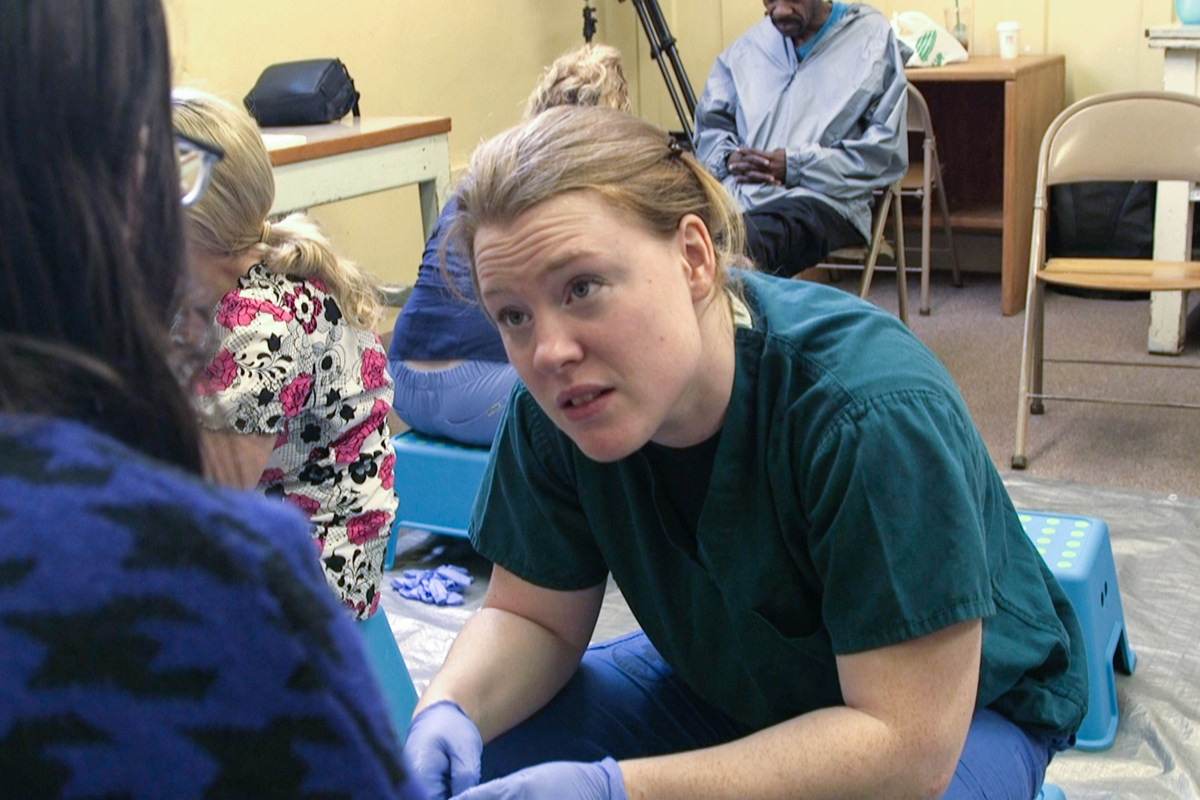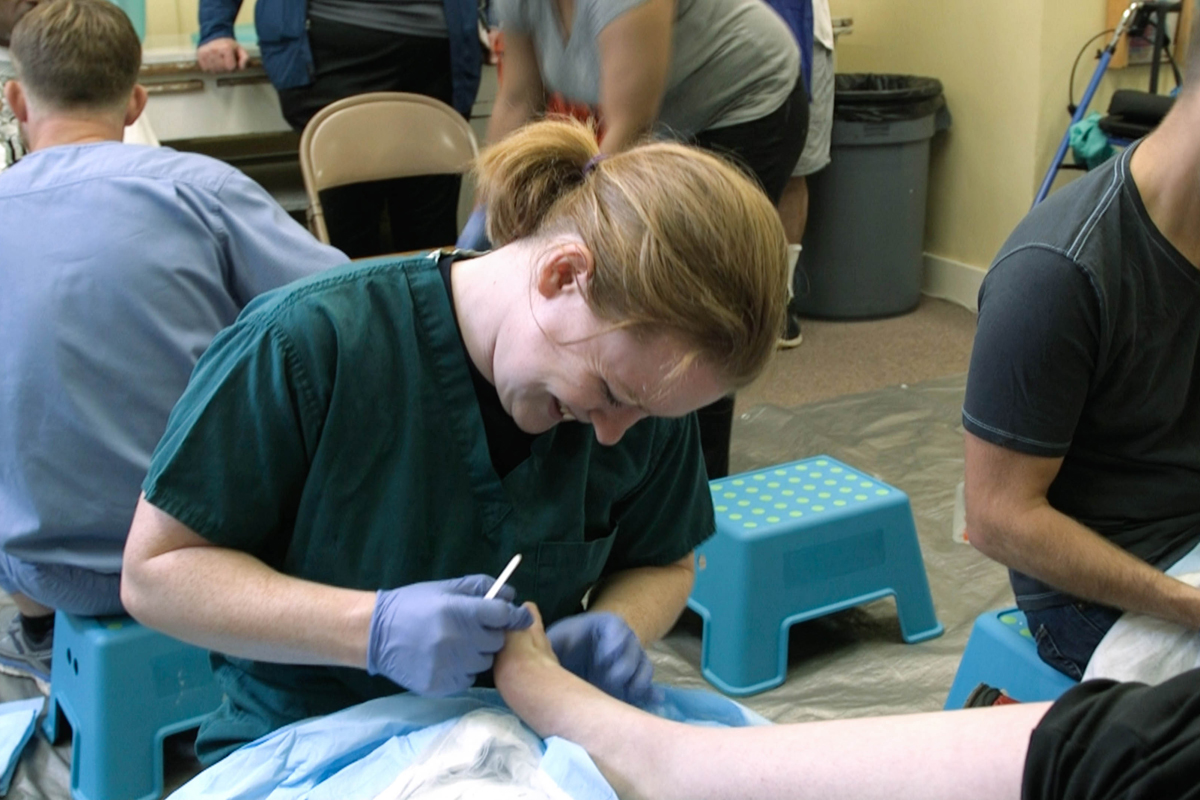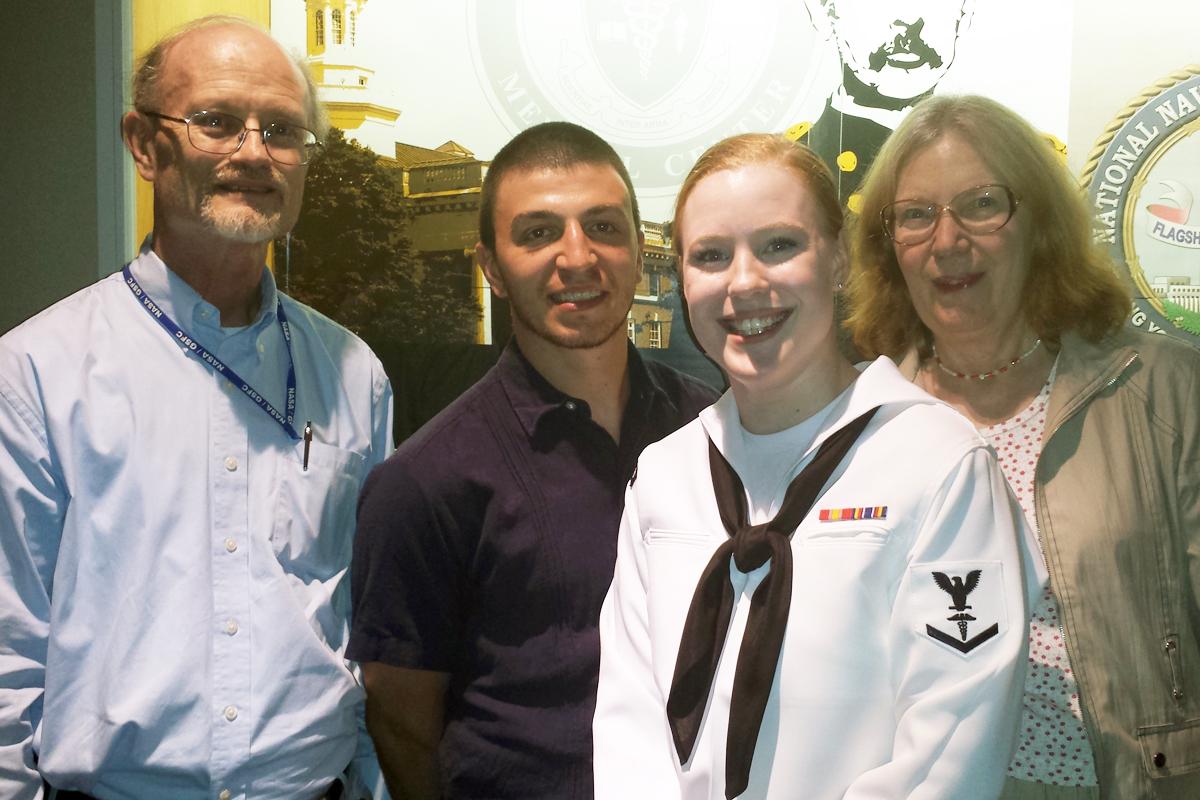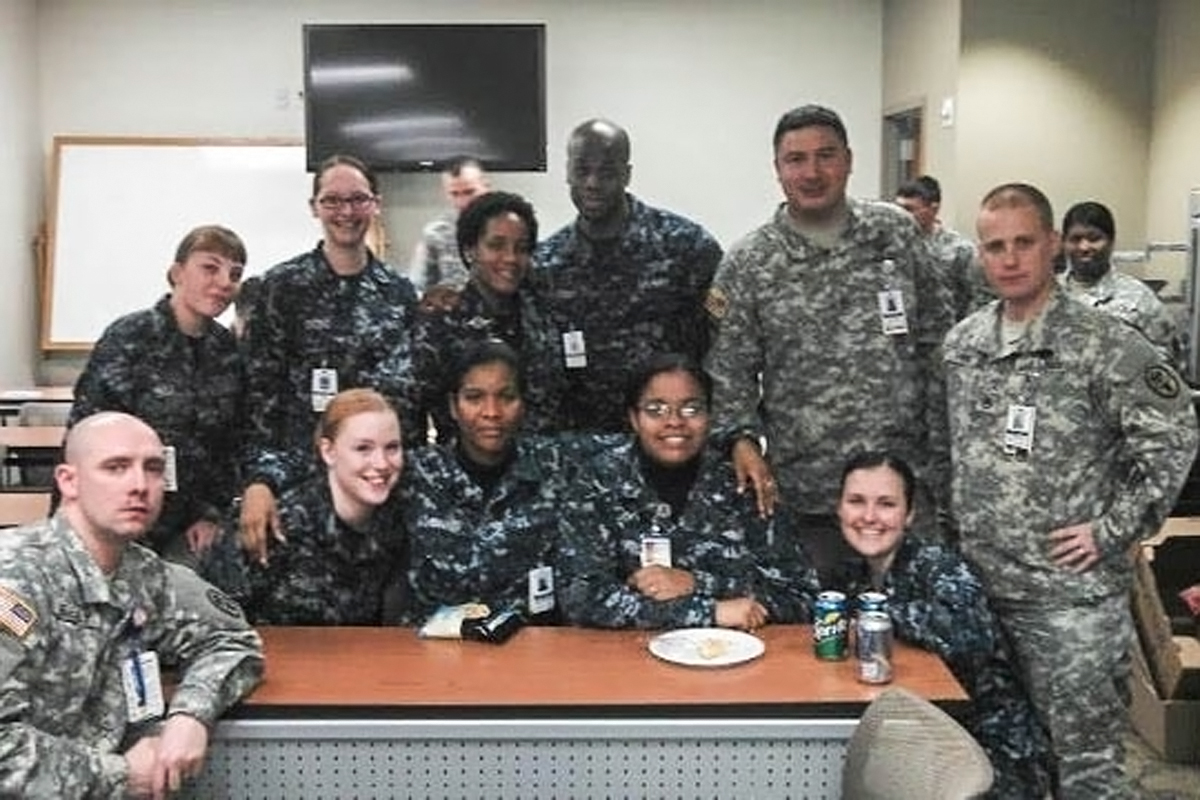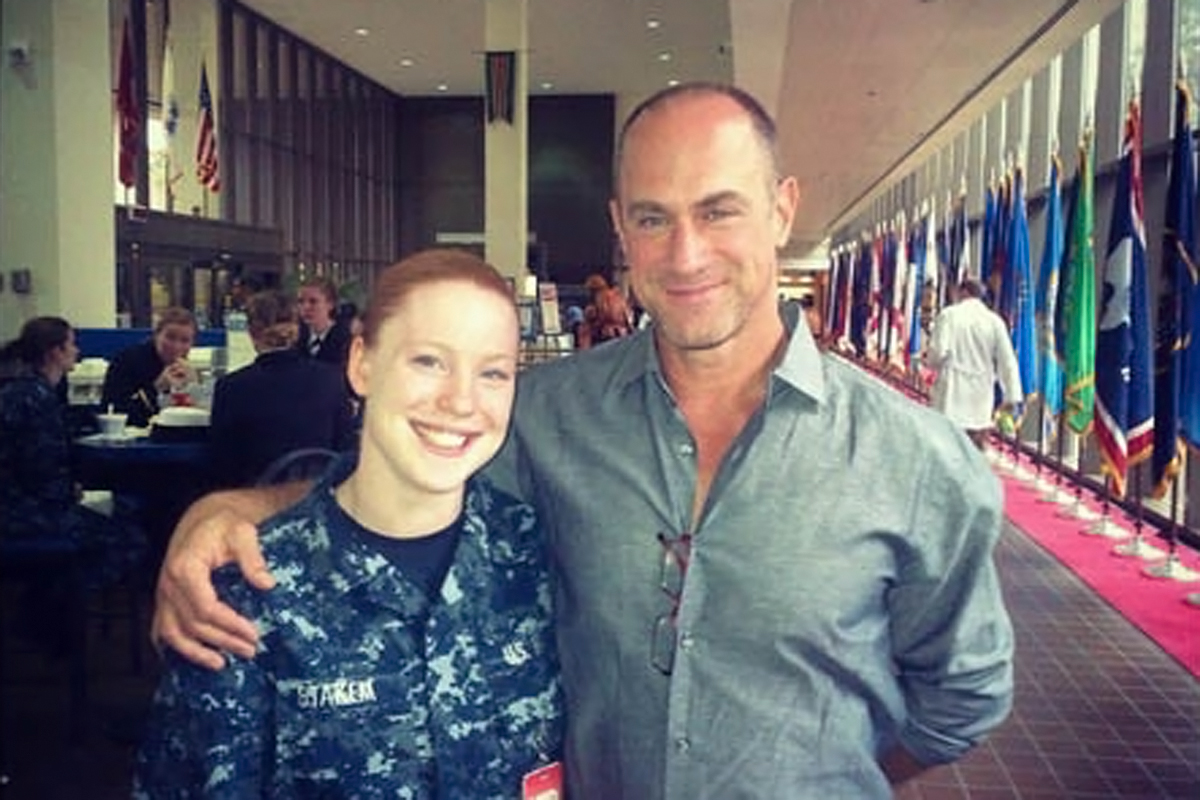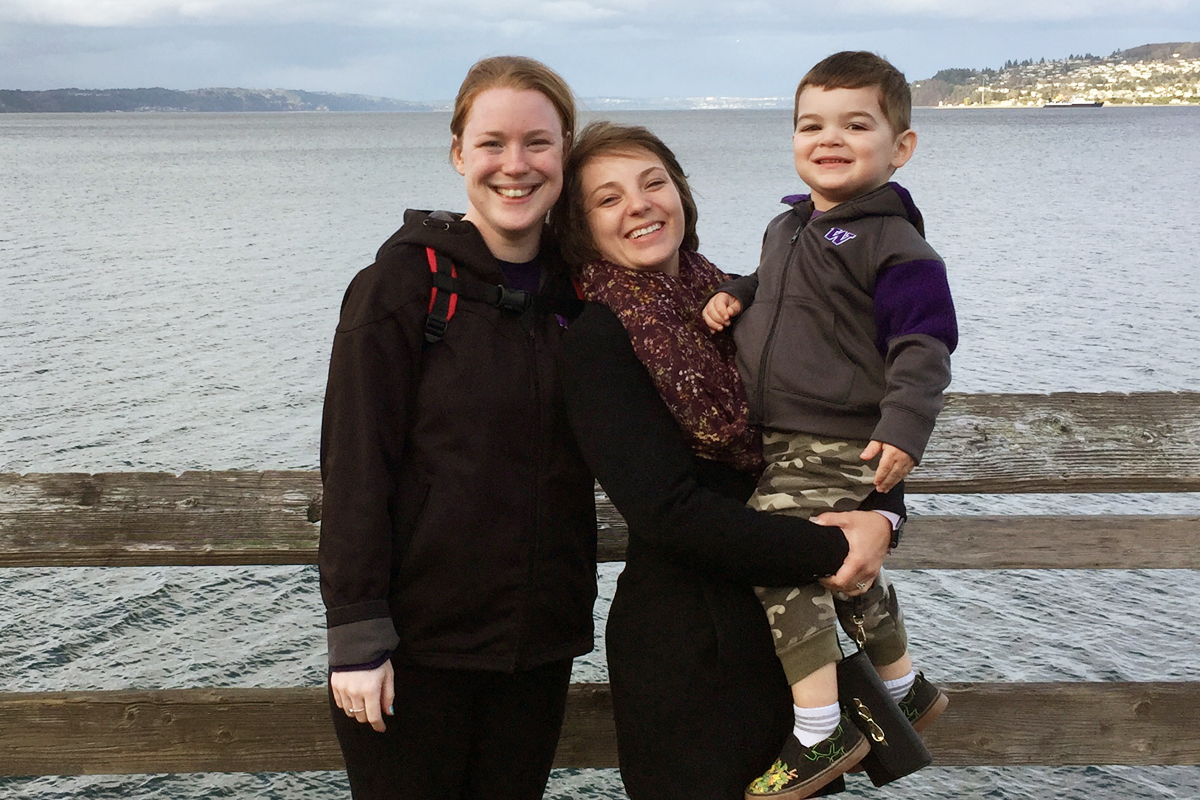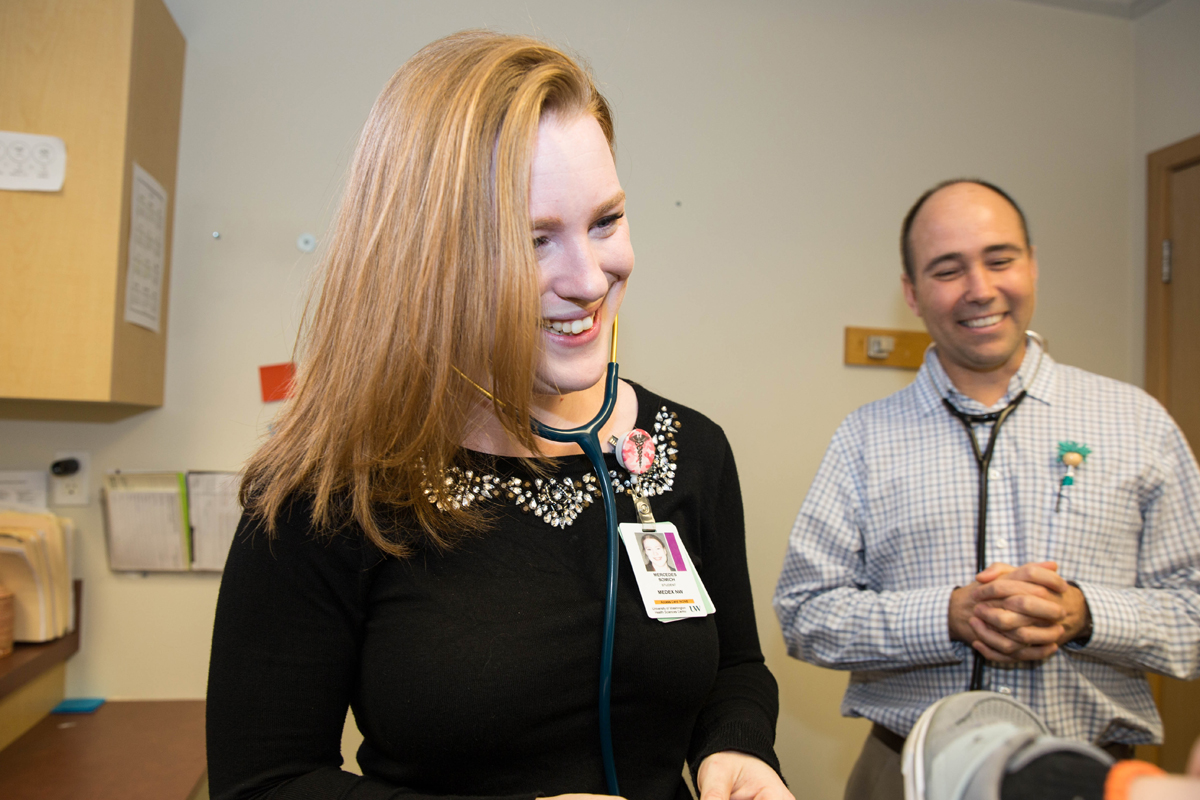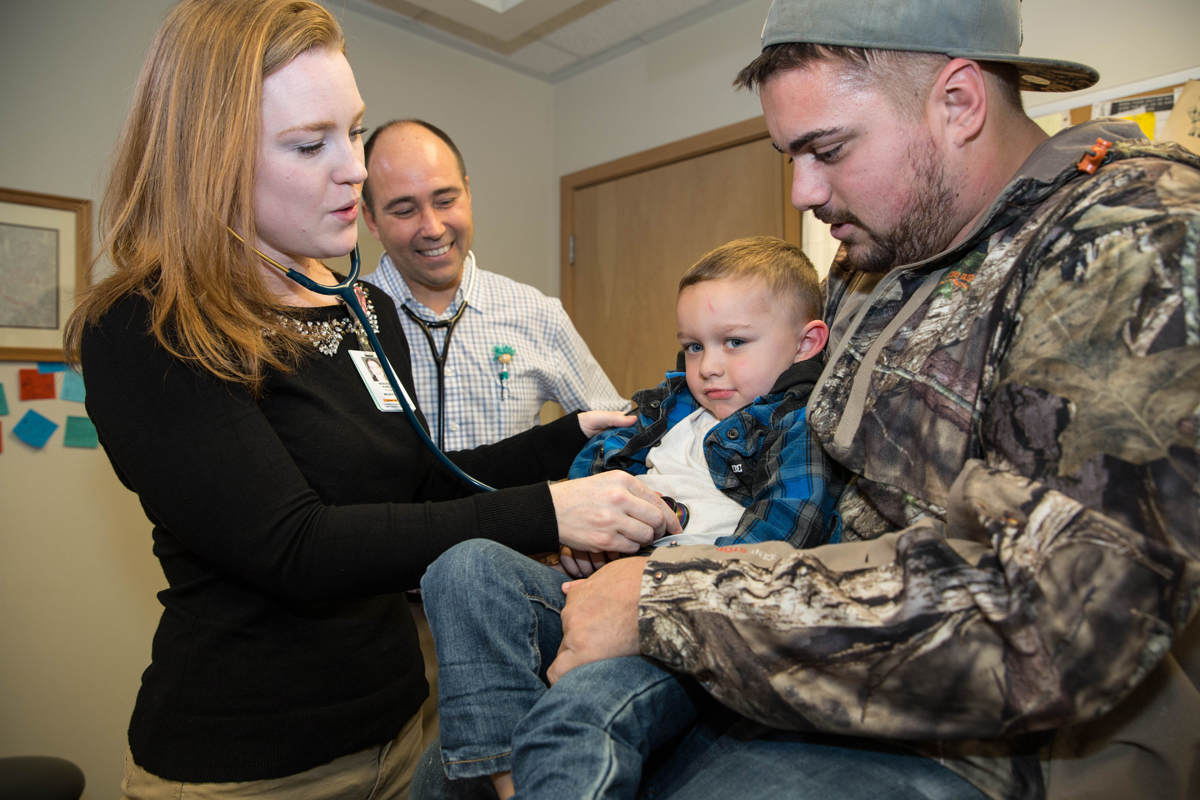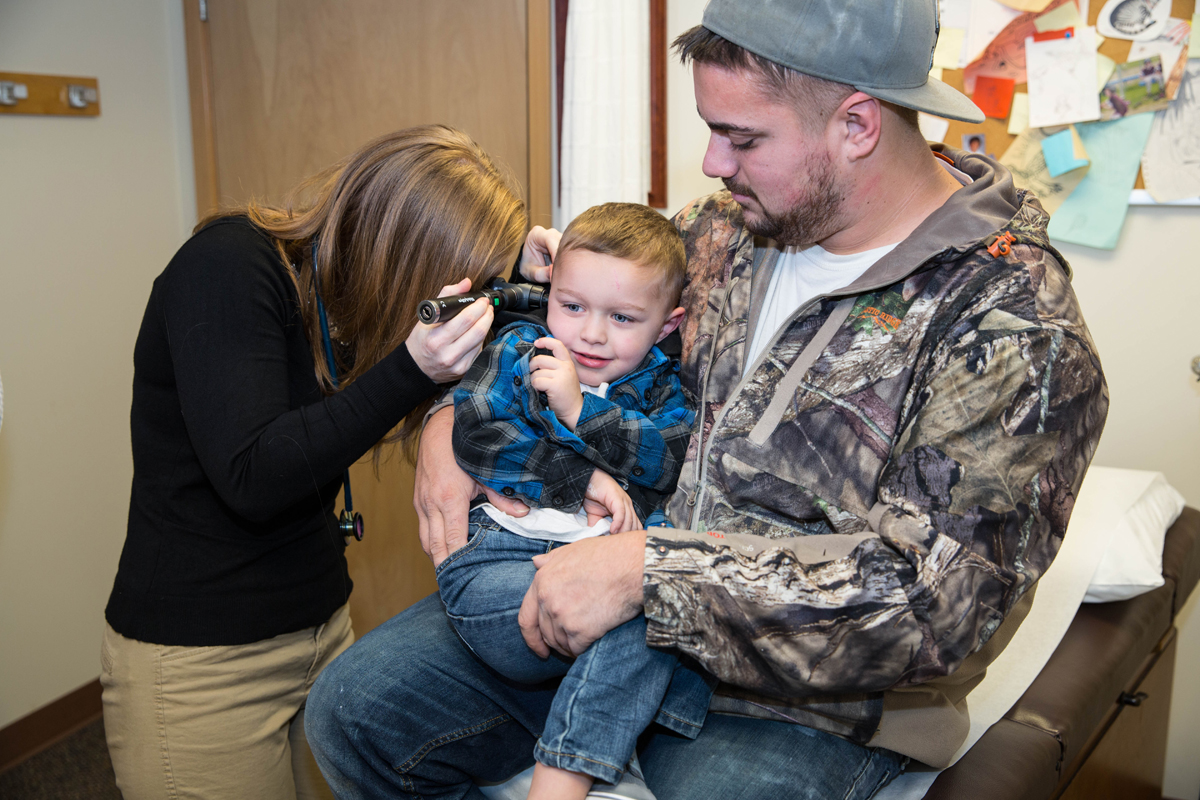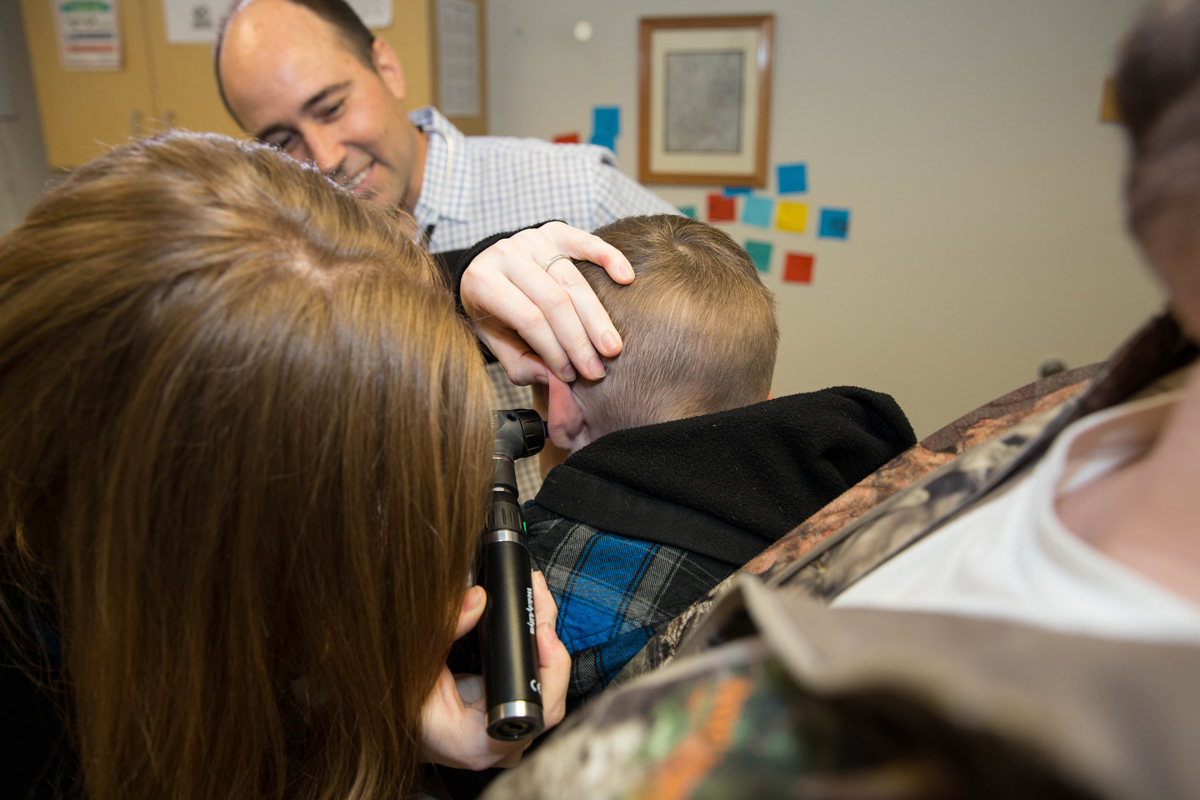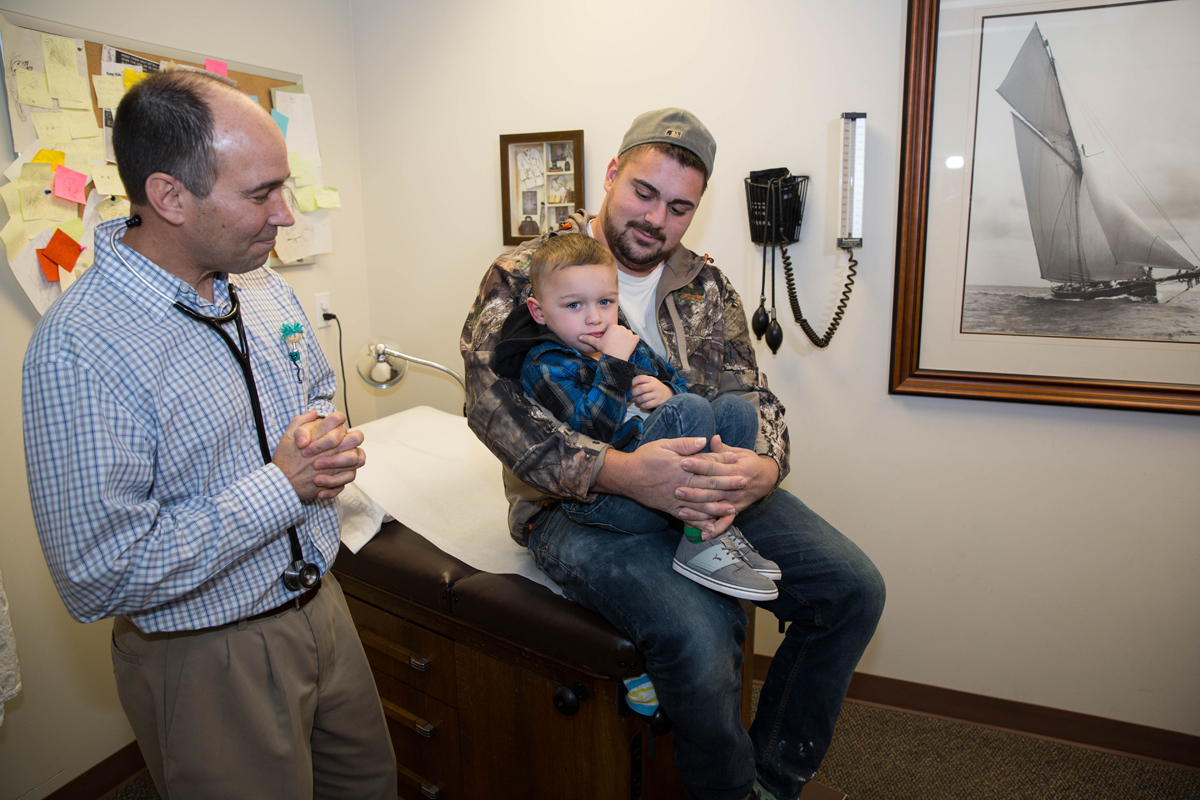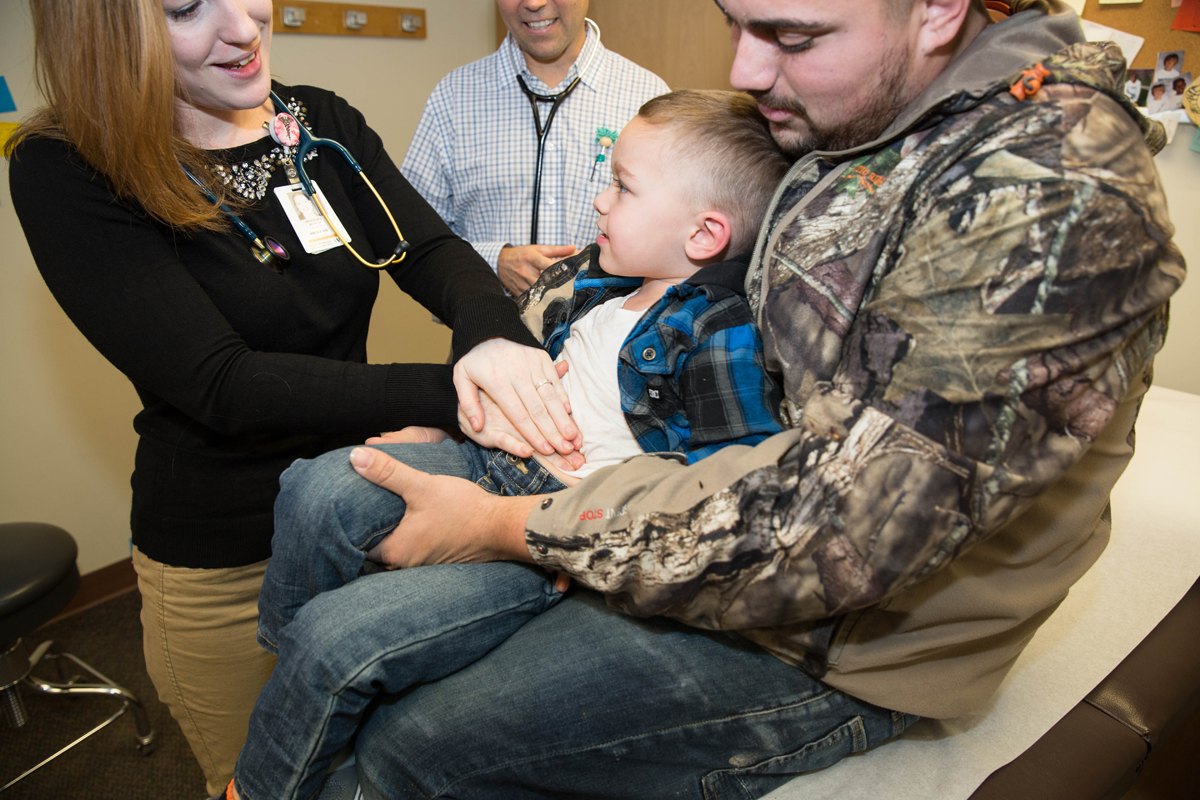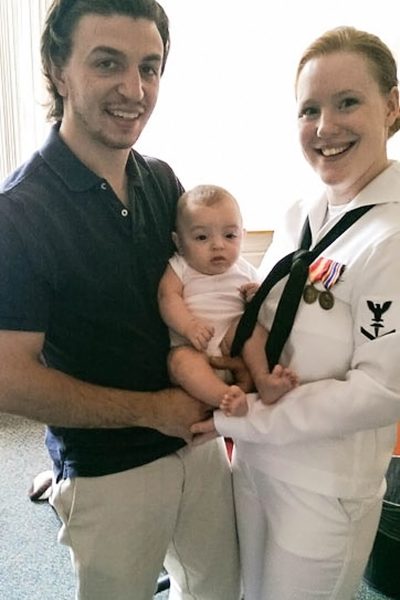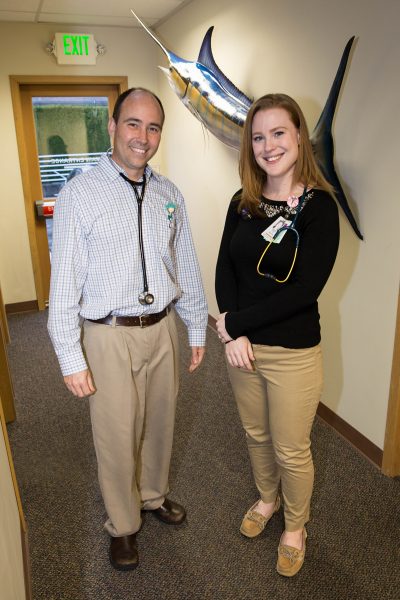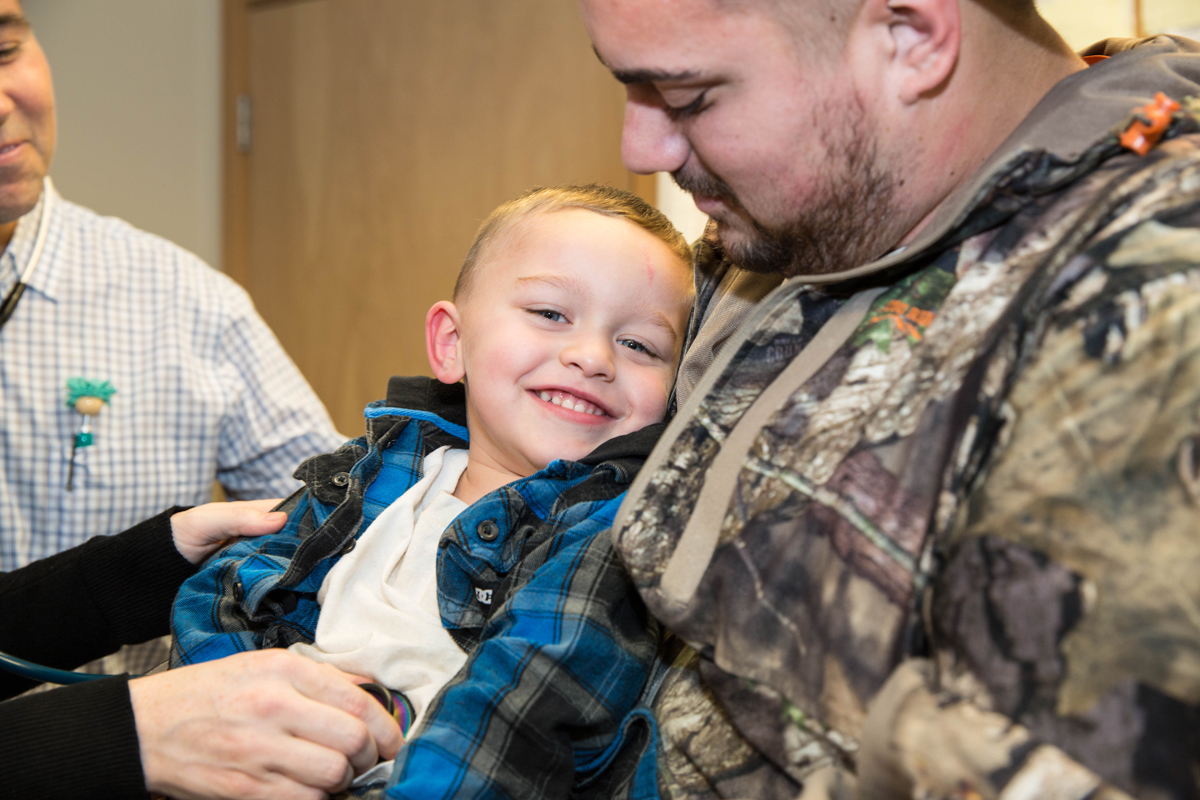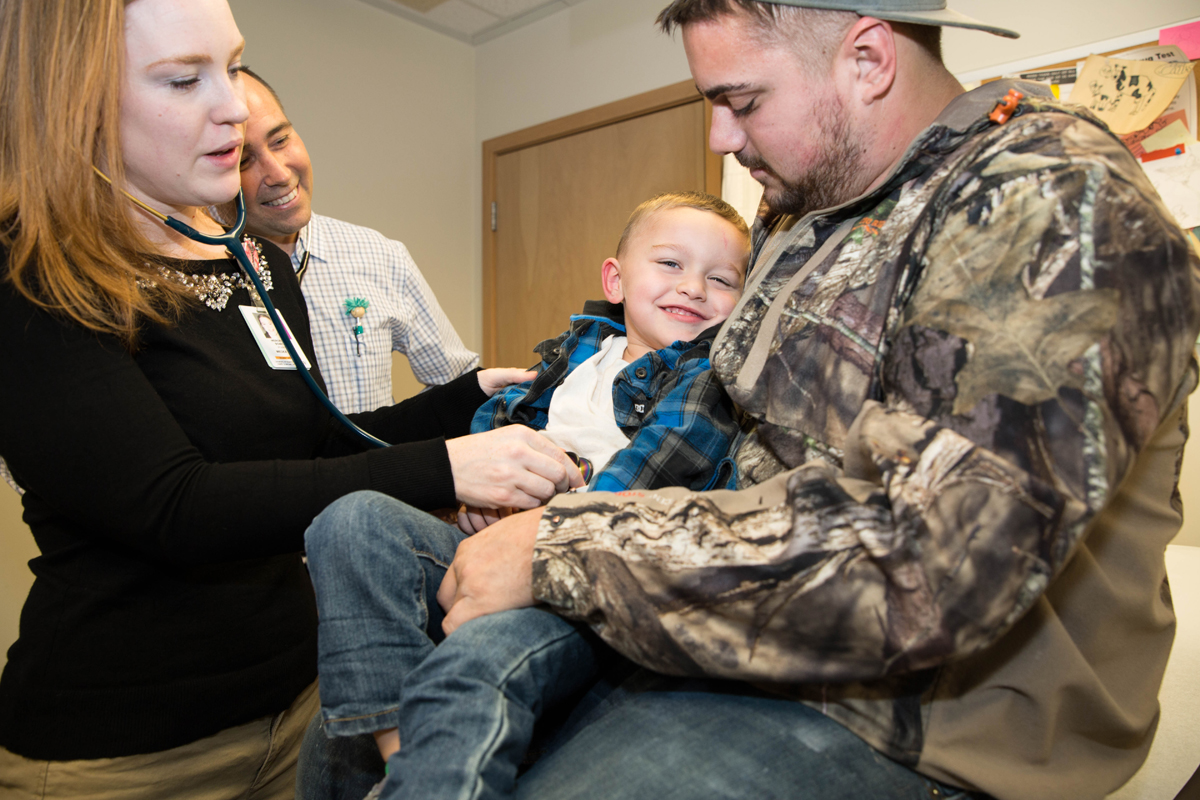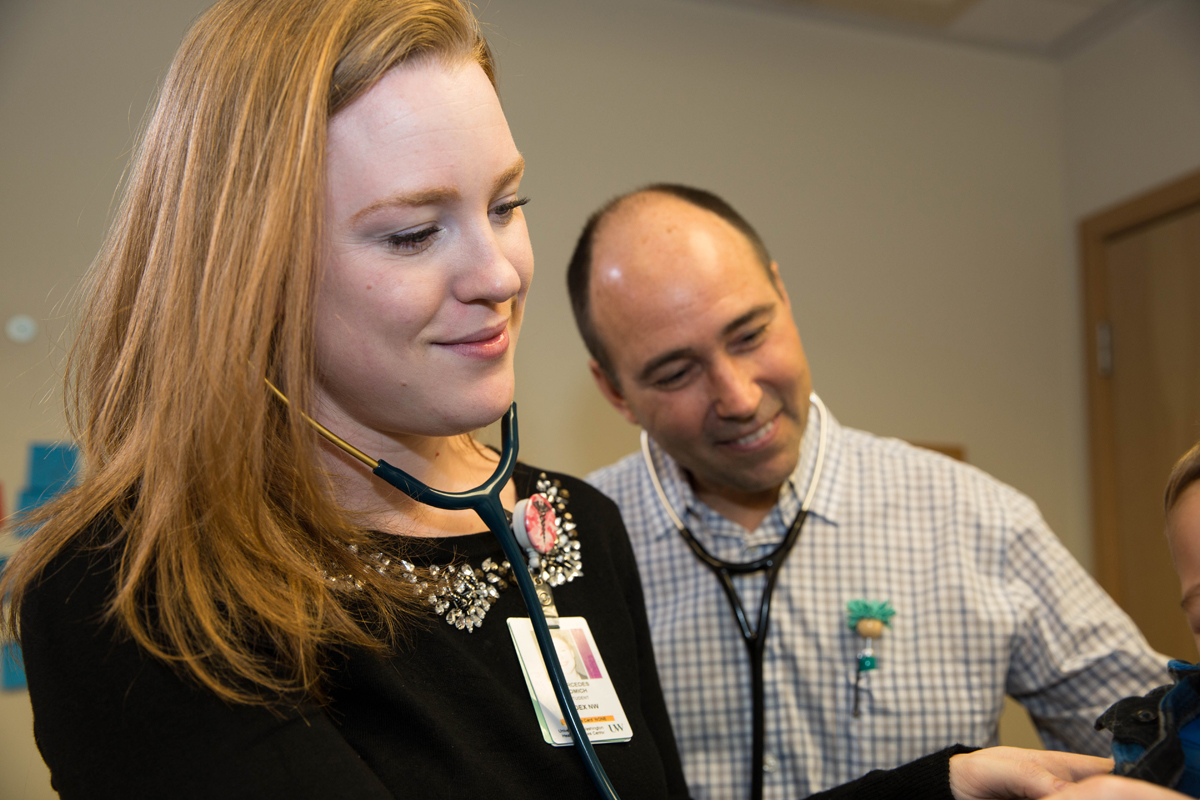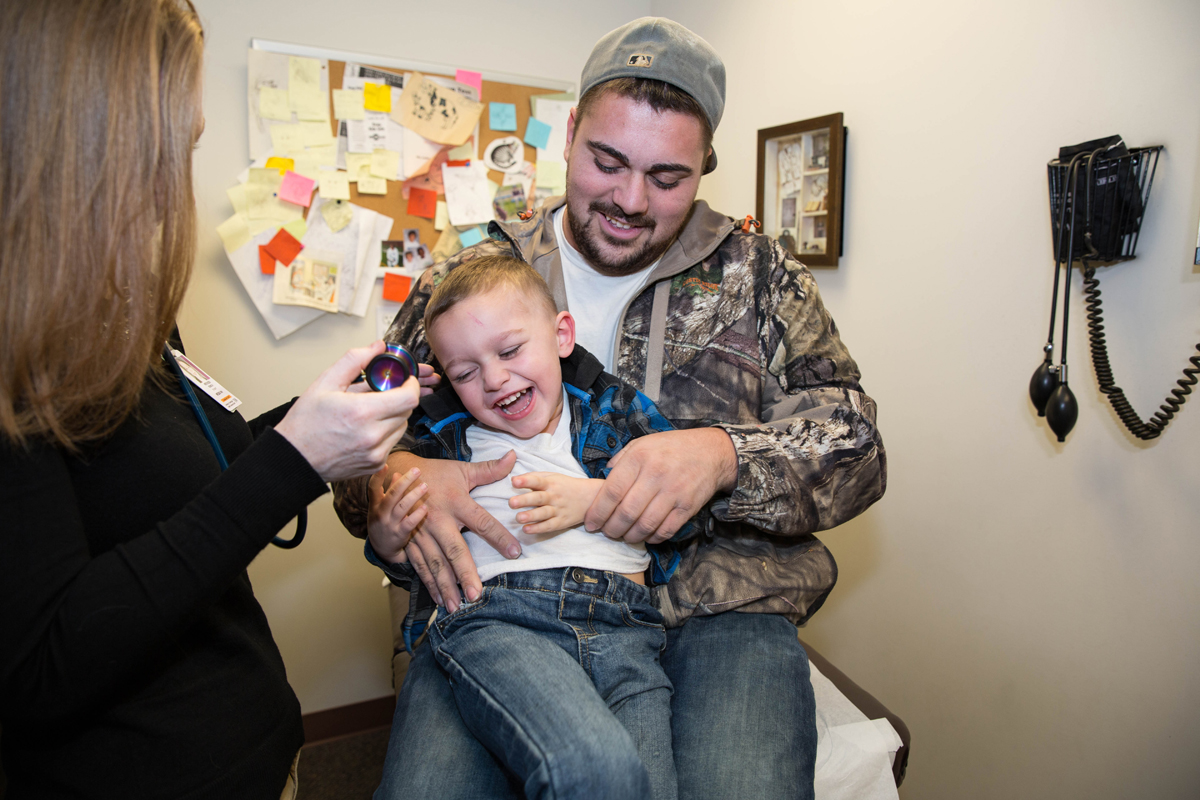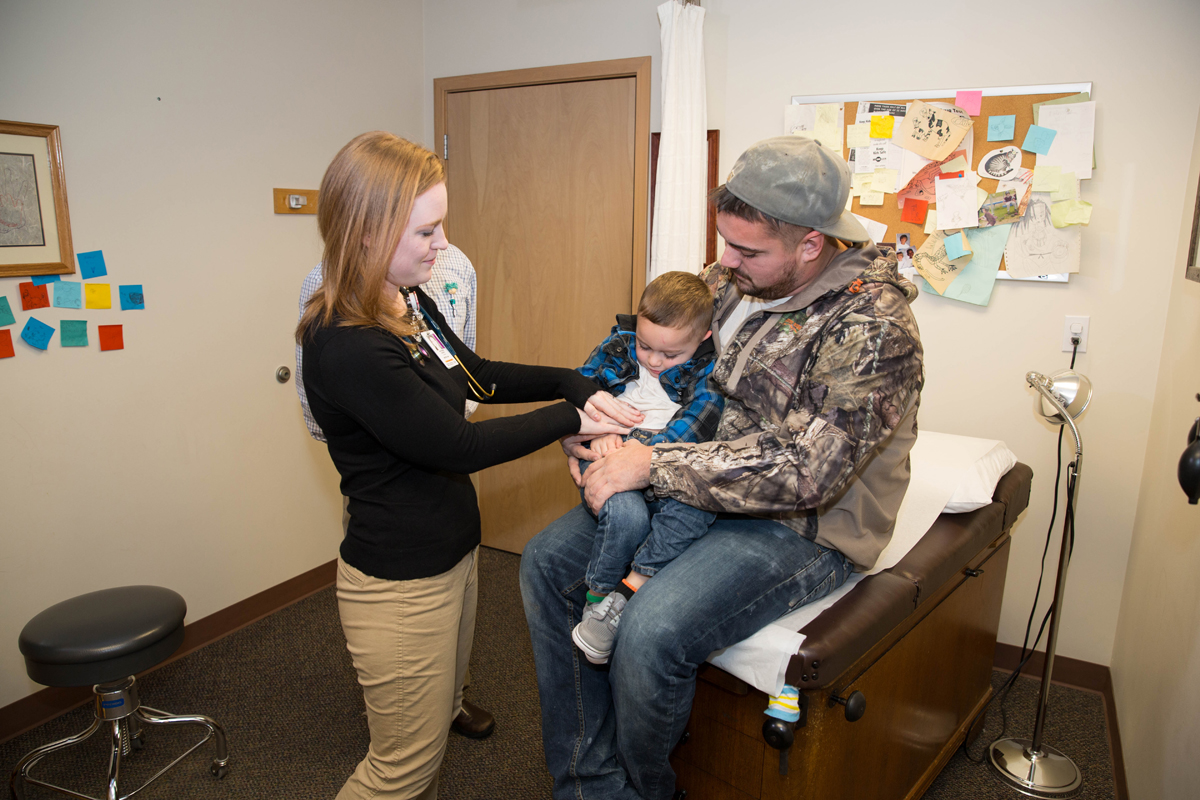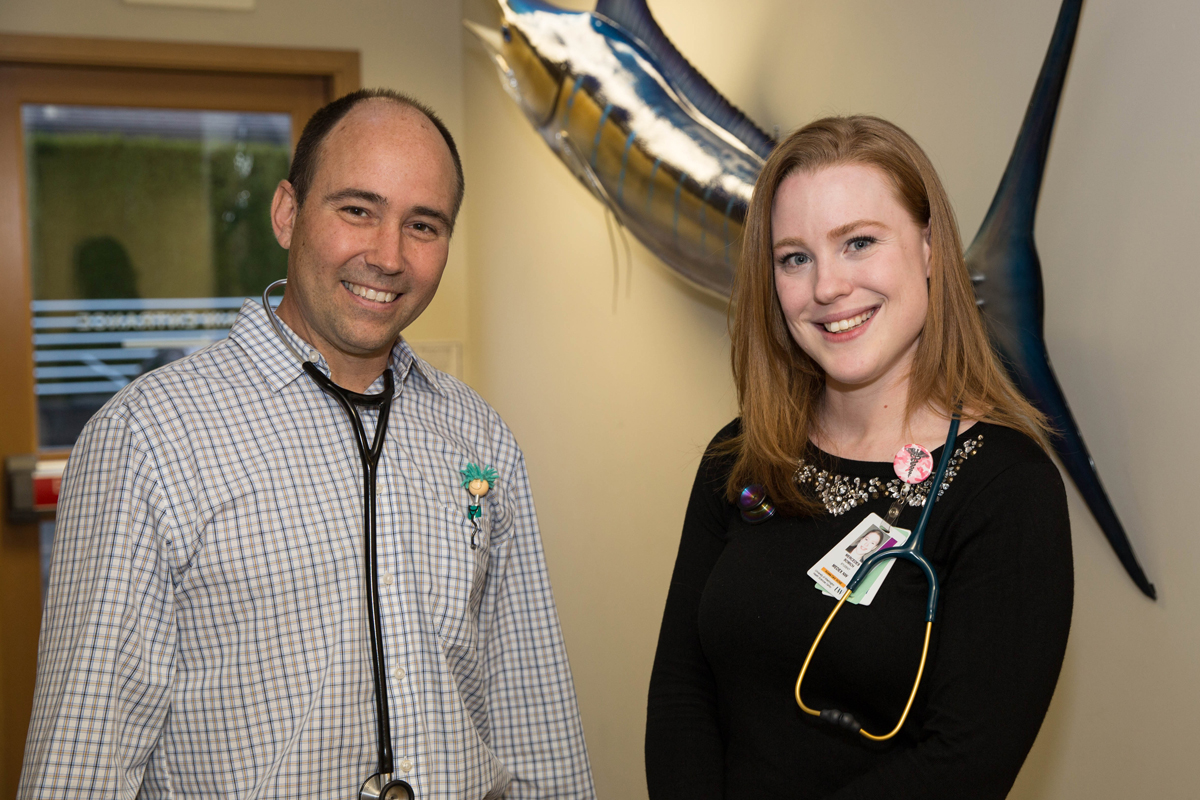One Sunday morning during the summer of 2016, Mercedes Somich stopped in at the MEDEX Tacoma Foot Project for the first time. Apart from the online anatomy and physiology course, she hadn’t even properly started her didactic classroom studies with MEDEX Tacoma Class 4. But Mercedes and a handful of her classmates decided to check out this student run project for the homeless, anticipating their future involvement.
Her five years as a Navy corpsman did not prepare her for what she found.
“Being at Foot Clinic was kind of a wakeup call,” Mercedes says. What struck her most were the stories that the homeless clients shared with her. “There was one girl in particular who talked about running away from home because she was sick of being raped by her stepdad.”
Mercedes pauses to remember the rush of empathy that filled her that morning as this girl told her story, and her need to step out for a private moment to cry.
“I was so glad I went that day,” she says. “I needed to have that moment of weeping.”
Mercedes’ medical background prior to entering the MEDEX Northwest physician assistant training program was very broad. As a Navy corpsman, she was stationed at Walter Reed National Military Medical Center in Bethesda, Maryland.
“This is the hospital for amputee care for our wounded warriors,” she explains. Mercedes worked in obstetrics and gynecology, including in-vitro fertilization. She spent time in gynecological oncology, followed by a couple years of hospital management and medical support for big events like the Army Ten-Miler and the Marine Corps Marathon. Later, there was vaccination support for the National Capital Region with vaccination teams at the Pentagon.
Her last military assignment was with neurology. “I was supervisor of six corpsmen under me in the neurology clinic.”
In addition to assigned duties, Mercedes took volunteer duties with the medical evacuation team, as well as some time as an adaptive swim coach with the physical therapy department.
About the breadth of her experience, Mercedes says, “I got pretty lucky. Being at the teaching hospital associated with the Uniform Services University, we had all of these very specific residency training programs. So, I was able to do some really high speed, top-of-the-line new stuff. Also, being across the street from the National Institutes of Health afforded a lot of research opportunities.”
One of the benefits and limitations of military medicine is exposure to a very narrow patient population.
“You’re not usually going to see the very sick, and you’re not really going to see the very, very old,” Mercedes says. “You’re going to see people from a certain socio-economic bracket. And so, while 19-year-old bilateral amputees are incredibly jarring the first couple of times, you sadly get de-sensitized and it becomes normal. I was acclimated to that in time. But then, I’m from a decent socio-economic background myself. Both of my parents are college educated, so I’ve had a privileged upbringing in that sense. Not sheltered, necessarily, but definitely privileged.”
She suspects this is why her initial contact with the homeless population coming to the MEDEX Tacoma Foot Project had such an impact.
“I’m a sensitive person, you know. But the empathy I felt in that moment cut through the way I’ve looked at the homeless … with blinders on.”
Now in her clinical year as part of MEDEX Tacoma Class 4, we caught up with Mercedes during her 4-month family medicine preceptorship under Dr. Peter LoGerfo in Puyallup. Among the things she’s learning at this rotation is the importance of behavioral medicine.
“Primary care really takes the brunt of mental health,” she says.
“We’re seeing acutely suicidal patients once a week. Sometimes these people are coming from the emergency room or from in-patient. Tim Quiqley did not exaggerate the amount of behavioral medicine that primary care offers.”
She’s referring here to MEDEX teaching faculty member, Tim Quiqley, PA-C, who is responsible for the behavioral medicine curriculum at MEDEX Northwest.
It’s all a far cry from her years at Bethesda, with Walter Reed’s robust mental health system, or her upbringing in the Washington, DC suburb of Laurel, Maryland.
Mercedes Somich grew up in a scientific household, her mother a medical laboratory scientist for Quest Diagnostics, and her father a software engineer at NASA. Medical terminology was common around the house.
“When I was five, my brother had mono,” she tells us. “My mom brought me into the lab to look at his blood under the microscope. So, science was really what life was about in the house. And we enjoyed watching medical shows together. I was interested.”
But in high school, Mercedes struggled with math and science. And while she had aspirations to move into the medical field, she didn’t think she had the grades.
“I didn’t think I was cut out for it, so I kind of gave up.”
Turns out Mercedes was talented in languages. By the time she joined the Navy in August of 2011, she was fluent in French and had taken six years of Russian.
“I actually joined the military with the hopes of being a translator,” she says. “I wasn’t accepted for that position, but they had a last-minute opening for corpsman, and so I took it.”
Clearly a quick study, a military career gave Mercedes the solid medical foundation that brought her to MEDEX. She left active duty in the gap between her 2016 summer and fall quarters at MEDEX. “Up until then, I was on permissive temporary duty,” she says.
With such a strong military medical background, we wonder why Mercedes didn’t pursue the Interservice Physician Assistant Program (IPAP), the military’s career training program for PAs.
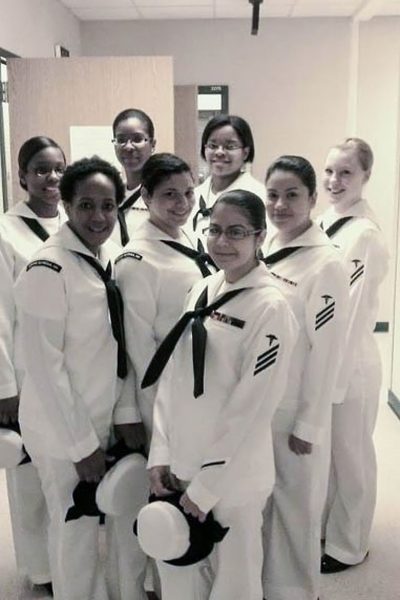
One of the earliest photos from Mercedes military training shows a uniform inspection outside the OB clinic. Mercedes is far right.
Her awareness of PA as a career path began during her first year at Walter Reed Medical Center when she attended a talk on the IPAP program.
“I had experience with PAs as a patient at that point, and had a vague understanding of their duties. But I was blown away by what this woman had to say about the program, and what being a PA was about. It sounded great.”
Mercedes started to pursue IPAP as a career direction, and then got pregnant. “I was working full-time active duty, raising my baby, and doing my prerequisite classes online.”
“I had this child,” she says. “Becoming a mother changed my mindset. Prior to my son, I wanted to be a corpsman with the marines. I was seeking out deployments. But once they handed me that little man, I re-evaluated my priorities. There are lots of women who do an incredible job balancing active duty and motherhood and I applaud them, but it wasn’t for me.”
Another consideration was her husband, Andy, who works as a mechanic.
“He’s my high school sweetheart, and I was dragging him along to wherever I was stationed. He hopes to open his own shop one day, and we can’t do that if were always on the move. So, transitioning out of the military made more sense for us as a family at the time. And it wasn’t like I couldn’t join the military later if that made sense. That door is not closed.”
Turns out that IPAP had more prerequisites than a private civilian PA program. Mercedes did a Google search for the nation’s best PA programs, and the University of Washington MEDEX Northwest came close to the top. “I did a little research about MEDEX and learned that it was veteran-friendly. They really seemed to reach out to veterans more.”
Mercedes flew across the country to Seattle for a MEDEX information session.
“I got tunnel vision to be honest, and MEDEX was the only school I applied to.”
Back in the Puyallup offices of Dr. Peter LoGerfo, Mercedes is getting a crash course in family medicine from a noted practitioner with 24 years of experience.
“Oh my gosh, I really could not be luckier for who they picked for my preceptor,” she gushes about Dr. LoGerfo. “Personality-wise, we really see eye-to-eye. He’s so patient with me. He doesn’t mind explaining something for the 40th time. He does challenge me and push me, but it’s never intimidating. It’s always very comfortable. The growth makes sense, there’s a logic to it. And the feedback I get from patients is just mind-blowing. About four times a day I’m told how lucky I am to have him as a doctor. His style—the way that he sees patients—he’s just old school. Dr. LoGerfo really takes the time. He does everything, you know—low-tech but thorough, and I like it. You don’t see that kind of medicine anymore, traditional family medicine, that is. There are even patients that fly in from out of state to receive their regular care here.”
Some days, Mercedes goes home exhausted, her brain like Jell-O.
“But I’m happy every day that I go home, and excited every morning when I wake up and come in wondering, ‘What are we going to do today?’.”
As her background with the military might indicate, Mercedes has a passion for women’s health. She has six 1-month rotations to complete in addition to her family medicine preceptorship, and she’s put in for an elective in labor and delivery at Fort Wainwright in Fairbanks, Alaska.
“Yes, I’m returning to military medicine for a bit, getting to do the one aspect of women’s health I haven’t done, which is delivering babies.”
Looking ahead past her graduation in August of 2018, Mercedes has a dream job.
“I would love to work for Planned Parenthood, doing that kind of women’s health for the women who need it the most,” she says. “I love what they stand for. With the current political climate, it’s going to be even more important to have organizations with that kind of mission. I have heard they like to hire Nurse Practitioners over PAs, so I’m just going to have to elbow my way in. I won’t be discouraged that easily.”
Does this mean she and her family have plans to stay in the Pacific Northwest?
“Absolutely,” she says.
“I came out to the Pacific Northwest with my parents on vacation when I was 15. I remember seeing Lake Crescent at Olympic National Park and I said, ‘That’s it’. I fell in love. So, yes, we’ve been living in the area more than a year, and I have my Washington’s driver’s license. I just registered all our cars so it feels pretty permanent, yeah.”
Her son, Braden, is three and half and very active.
“He’s kind of learning everything along with me,” she says. He likes to listen to physician assistant podcasts in the car with Mercedes, and will ask her specifically to put them on. “He knows how to use my stethoscope, and tells me he wants to be a bone doctor. He’s awesome, he is such a motivation for me to keep doing this.”
Mercedes found being in PA school very similar to being in the military.
“You spend every single waking moment together, and even beyond that,” she explains. “You’re studying together, you’re in class together, you’re socializing together. I was so lucky to have such an incredible cohort. It was very well picked as far as diversity of experience.”
Mercedes singles out several names from MEDEX Tacoma Class 4 as her main support, but then includes the entire cohort. “I love all of them, seriously. Even the ones I don’t necessarily get along with, I still love them.
She recognizes this is a special time together, that the trials of going through PA school together will bond them all for life.
“During my initial admission interview process, I told MEDEX, ‘I can handle anything. I was active duty while raising a kid and going to school. You can’t throw anything at me that I can’t handle.’ Well, they managed to find a way in the end.”
That first didactic year in the classroom proved to be very stressful, and there were times when Mercedes wanted to give up.
“Would it be PA school if you didn’t question your life choices? But you just keep going, and you keep your eyes on the prize. Plus, I had my husband and my son supporting me every step of the way. You know, my husband really took up a lot of the child care, being both mom and dad so that I could focus on school. With the rest of my family 3,000 miles away, I am very grateful to him”
Finally, Mercedes Somich has some advice to those in the military who might be considering a career in the private sector as a physician assistant.
“To any corpsman out there who is on the fence between becoming a PA or an independent duty corpsman, just make the jump,” she says. “You can do it, you can absolutely do it! You are smart enough, you do have the experience, and I am 100% positive that you have leadership behind you that will get you the rest of the way there. So just make the jump. Do it! PA all the way.
